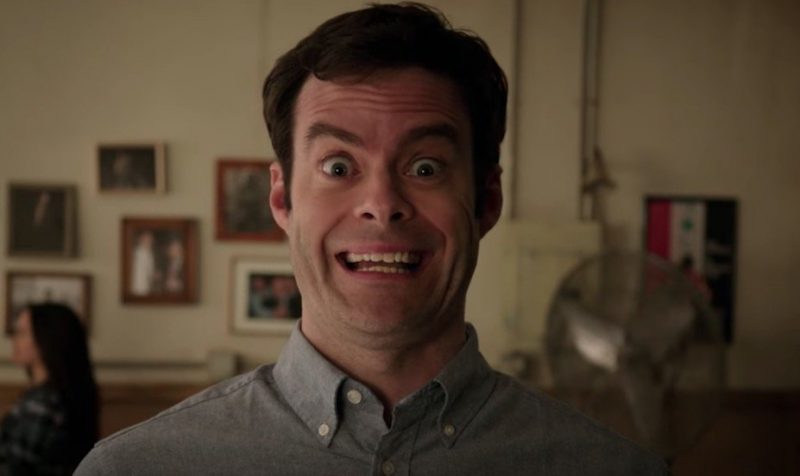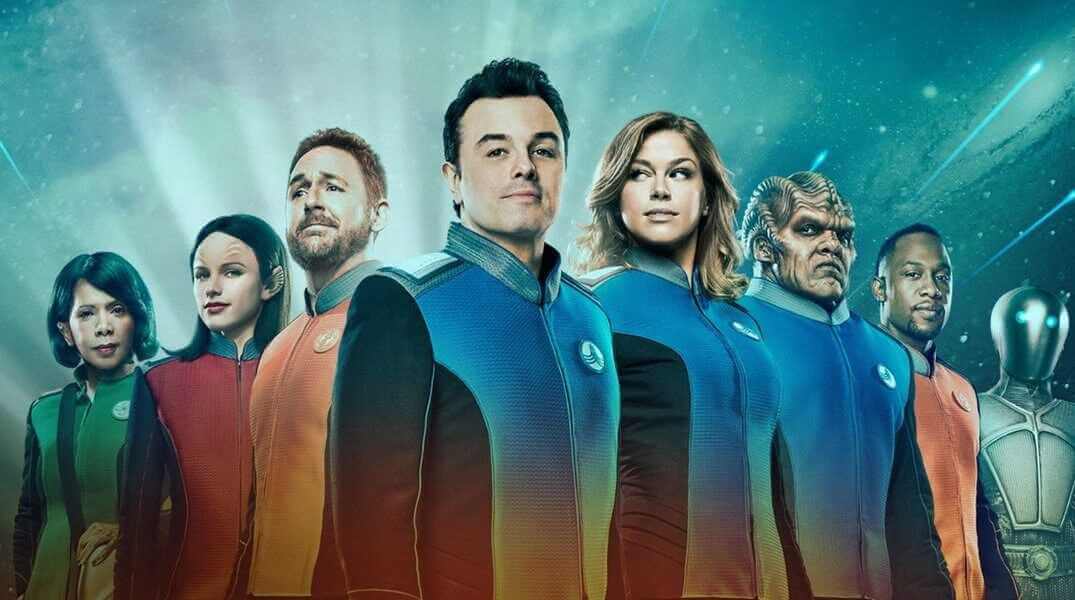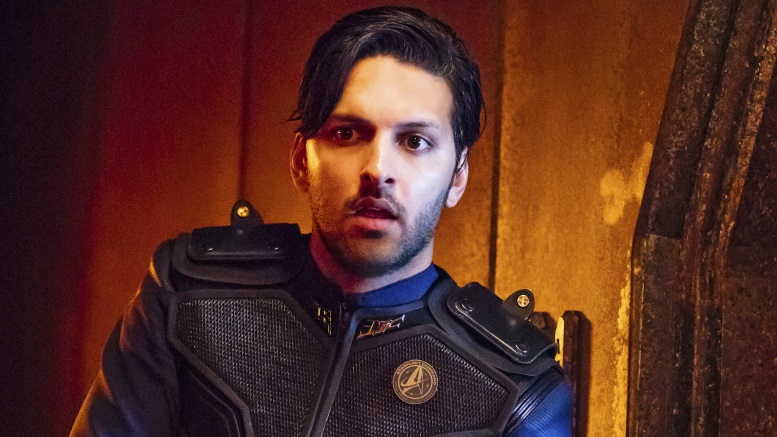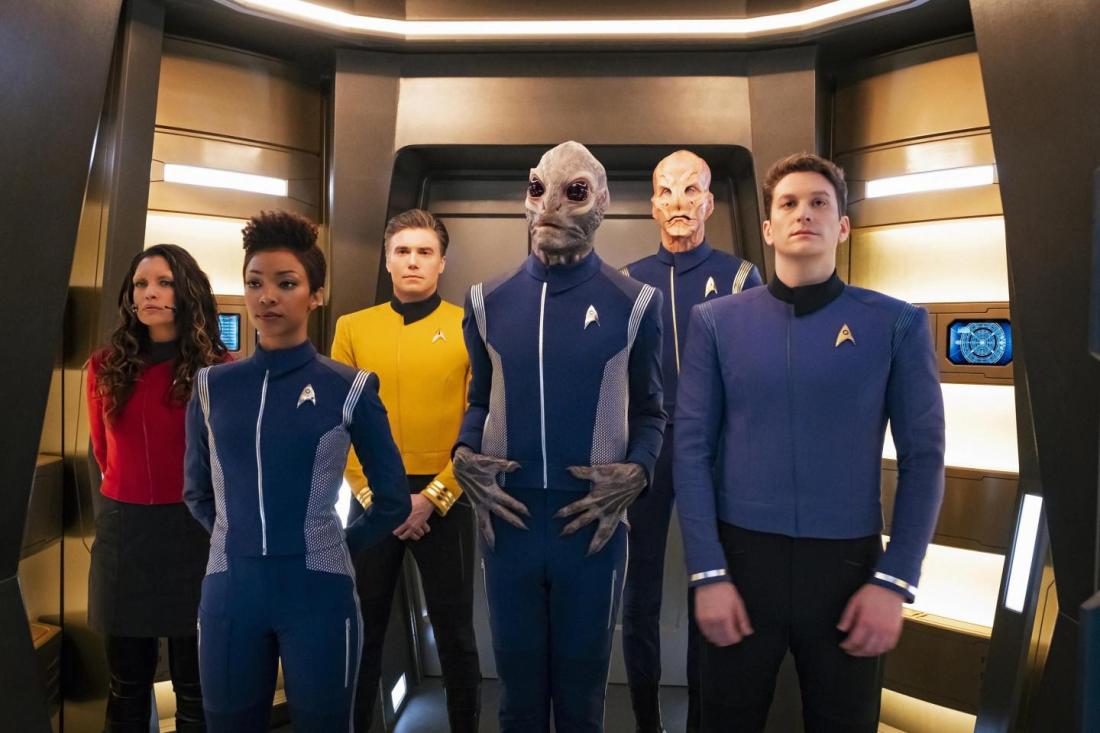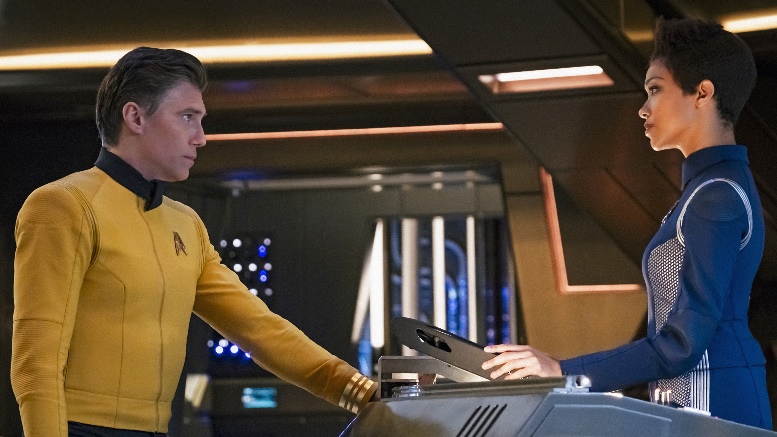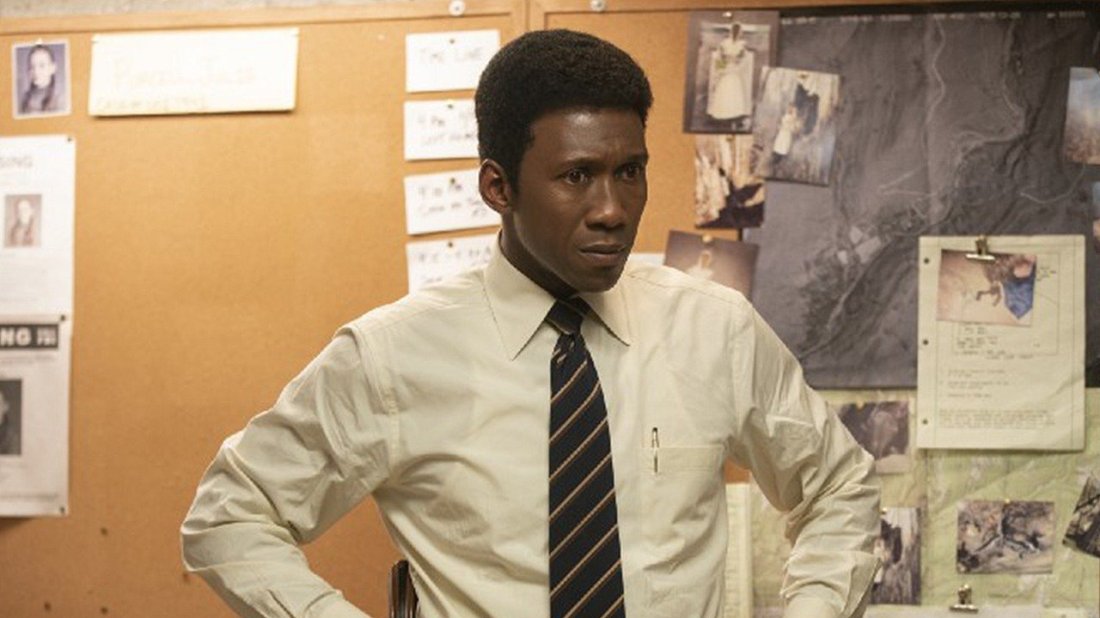I probably don’t need to remind you of the sheer ridiculousness that is the wealth of content we currently face on television and streaming platforms. It seems like we can barely ever go a week without something new and exciting dropping as Peak TV continues to miss reaching the actual peak we’ve been promised year after year. It’s gotten to the point where new shows are more exciting than most returning shows, not only because they keep attracting bigger and bigger stars both on and behind the camera, but also thanks to the talented writers and creators getting more and more out of the medium creatively. 2018 was no different, as 2018 saw big stars like Oscar winners Julia Roberts, Emma Stone and Sean Penn take their first starring roles on the small screen, competing with the creative apex of talented veteran TV actors and comedians like Maya Rudolph, Bill Hader and Sandra Oh. 2018 saw a surge in horror television like we’ve never seen before, creative original shows which you can barely even talk about without spoiling, expanding cinematic universes and gratifying miniseries. And that’s just the beginning.
You might be sick of hearing this year after year, but 2018 might seriously have been the best year for new shows yet. To the point where I felt I had to delay this list to get in as many shows as possible. And still, I’m missing a lot of shows which will probably get me in trouble with the people reading this. I’m ashamed to say that I still haven’t gotten around to shows like Cobra Kai, Corporate, The Haunting of Hill House, The Terror, Escape from Dannemora, DC’s Titans, and I’m sure that list is missing shows I haven’t even thought of that’s making someone very angry as they’re reading this.
In other words, you can’t make everyone happy, and this is your general disclaimer that this list is very subjective and tailored to my personal taste. So don’t @ me, but please @ me in the comments, and consider this a living list as I fill in the gaps mentioned above throughout 2019.
Still, I watched enough TV in 2018 to come up with a list of over 20 fantastic new shows, so let’s not waste any more time!
But first, a couple of Honourable Mentions to four Netflix talk shows that I really enjoyed: The Joel McHale Show, The Break With Michelle Wolf, My Next Guest Needs No Introduction with David Letterman and Patriot Act with Hasan Minhaj all gave me a reason to tune in to Netflix weekly for large chunks of the year. And that’s something that I felt I couldn’t really say about Netflix a lot on 2018. While they released a record amount of content, not as much of it hit for me as in years past. They also started cancelling shows for the first time in any significant way (pouring one out for Joel and Michelle), so clearly these talk shows were a means for Netflix to try something new. With only a few of them renewed for more episodes this year, the jury on this experiment is still out, but I would definitely like to see more content like this, even if the algorithm may have told Netflix that this wasn’t really the case. Nevertheless, I’ll always have those dozen or so weeks with Joel!
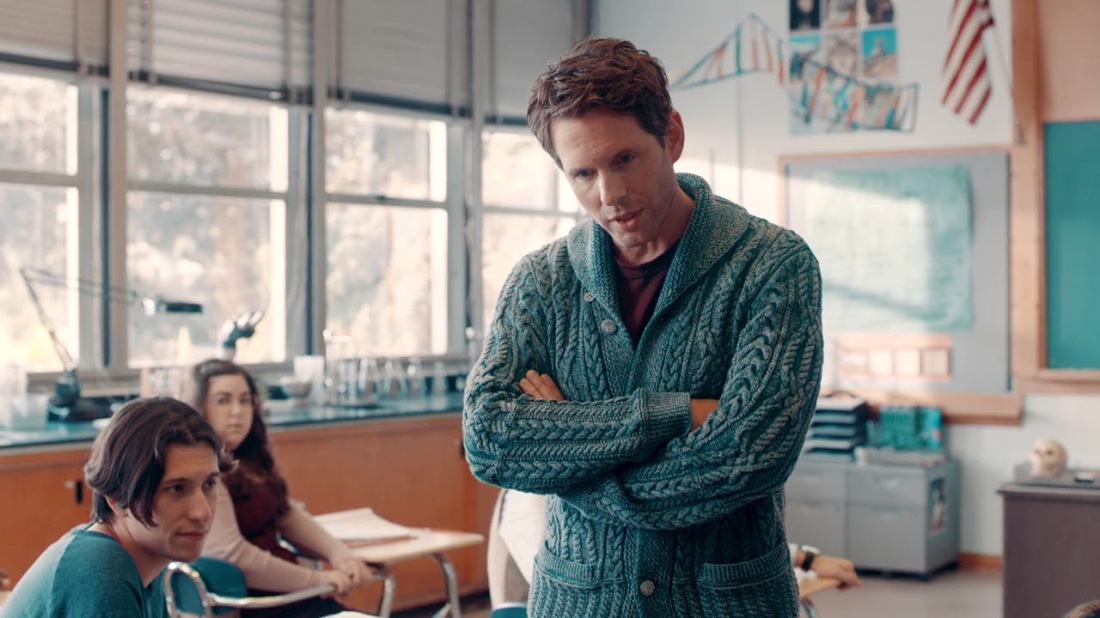
20. A.P. Bio – NBC: Glenn Howerton’s attempt to branch out from It’s Always Sunny In Philadelphia started off rocky but really came into its own as this NBC sitcom’s first season wore on. I’m glad this show is coming back for more as it has potential and a great cast.
19. The Looming Tower – Amazon: Amazon’s 9/11 miniseries featuring a great scenery-chewing performance from Jeff Daniels tells the story from the perspective of the FBI and CIA butting heads in the months leading up to the attack. This show earns its spot based largely on its premise, performances and early episodes, as things get kind of muddled, especially when they start reaching the finish line, which, as you may have guessed, depicts the events of 9/11 and ends the whole series on more of a downer than it probably earns.
18. The Kominski Method – Netflix: While I suppose I don’t know what all these awards shows are seeing in Chuck Lorre’s rather pedestrian foray into the world of Netflix sitcoms, portraying LA from the perspective of an over the hill actor/acting coach (Michael Douglas) and his even older agent (Alan Arkin), the two main performances from those aforementioned actors are so good that it lifts the show passed what you might figure is its potential.
17. New Amsterdam – NBC: I’m not really a fan of the current crop of network medical dramas, so NBC’s flashy new medical drama really filled a big gap on my viewing schedule this past fall. It’s over the top, preachy and often ridiculous, but it’s anchored by a charming lead (Ryan Eggold), a good cast and a lot of attention-grabbing tricks like its persistent percussion soundtrack and a good balance between cast drama and interesting medical cases. Let me be clear, this show is probably not good, per se, but it falls perfectly into that territory of dumb network shows you need once or twice a week.
16. Castle Rock – Hulu: I’m not sure I get what’s going on on Castle Rock most of the time. I’m not even sure what the show is supposed to be about, as it’s set in the world of Stephen King’s tales and often references them, but sort of does its own thing. Castle Rock earns most of its points on ambiance and tone, as well as great character actor performances (Sissy Spacek, Andre Holland, Bill Skarsgard, etc). This world feels lives in, and everything is confusing and creepy, and that’s probably what the show’s creators were going for, making me happy to be along for the ride.
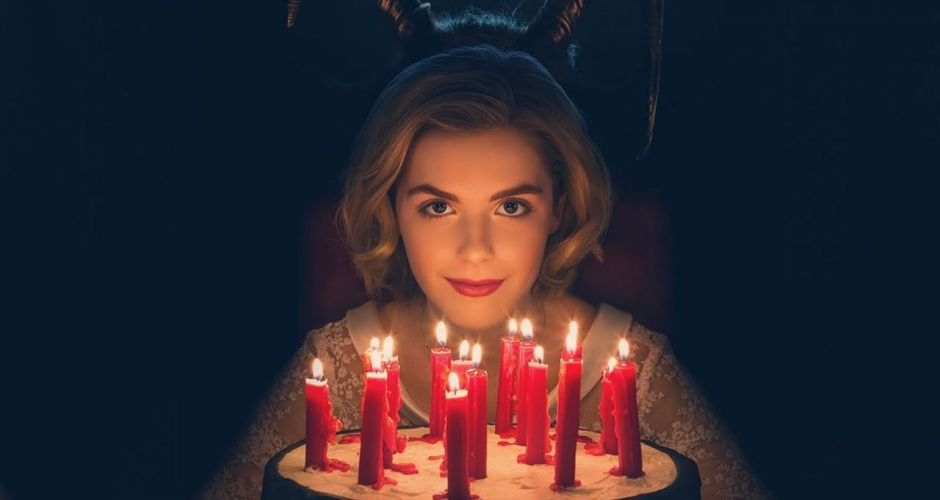
15. Chilling Adventures of Sabrina – Netflix: I’ll be honest; I probably disliked as many thing about Sabrina as I liked. The casting is great, the characters are great, the world feels rich and lived-in and the show perennially feels like it’s going somewhere. But I also hate how slow it is, how much each episode drags (Netflix needs to crack the whip with the editors that make their shows, every episode could be at least 15 minutes shorter), and how far it leans into the CW school of how to make teen dramas. But there’s one thing that sets Sabrina apart and keeps me coming back for more, and that’s the pitch perfect casting of Kiernan Shipka in the titular role. I just hope season 2 is a little more streamlined, a little tighter.
14. The Little Drummer Girl – AMC: Speaking of shows that overstay their welcome, I don’t understand how you can make a show out of a John Le Carre novel so well and yet so utterly boring at the same time. This thing is only six episodes, but it feels like twelve. If I’m being honest, this is a case of Peak TV going too far and making a show out of what probably should have been a movie. Nevertheless, TV is where Le Carre stories have decided to reside, so this is what we get, a show with great performances (Florence Pugh is a revelation, Alexander Skarsgard continues to make me wonder why he isn’t already a movie star, and Michael Shannon is, well, Michael Shannon), a compelling story and beautiful settings that doesn’t really know what to do to put all of it together. It’s almost a wonder that someone could make a show with all of that good stuff (good enough to earn a spot on this list) so boring. Then again I tend to be overly critical on the lower end of these lists…
13. Everything Sucks! – Netflix: The thing that sucks the most about Everything Sucks! is that Netflix didn’t have the confidence in this quiet little show about growing up in the 90s enough to renew it passed a second season. Maybe it was a tad too derivative or reliant on nostalgia, but I really like what they managed to do with a cast of unknowns and with the plot they had. It’s a shame more people didn’t see it, but with a relatively close-ended arc, I’d still highly recommend the one and only season.
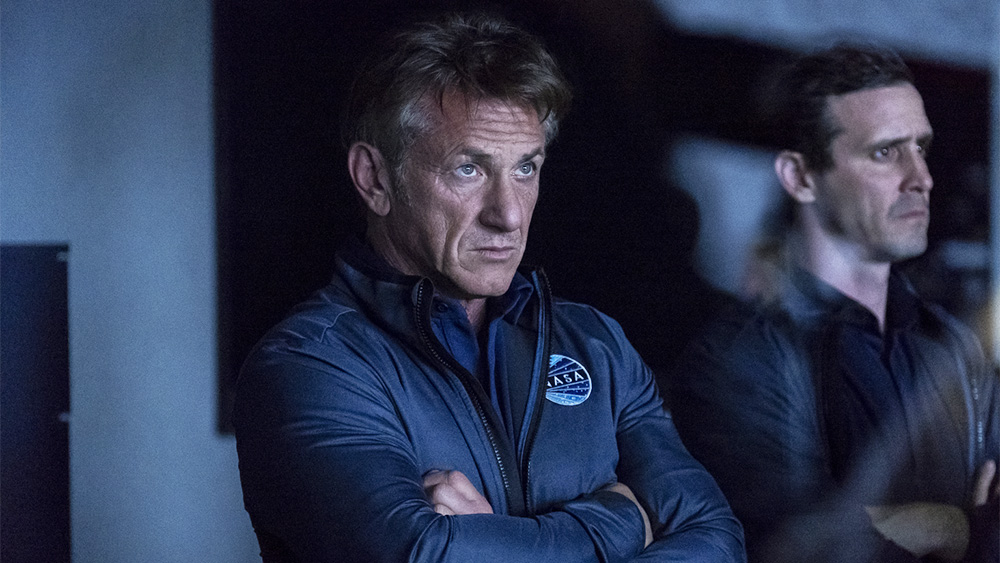
12. The First – Hulu: Between this and First Man, space stories with “First” in the title wound up kind of under-performing, despite big budgets, star power and compelling stories. I think for similar reasons too. Both Hulu’s near-futuristic drama about the first manned mission to Mars and Damien Chazelle’s Neil Armstrong biopic relied a little too heavily on uninteresting character drama. The First is largely build around Sean Penn’s character’s relationship with his addict daughter and whether or not he can leave her behind to go to Mars. First Man centers around Armstrong’s difficulty overcoming the death of his daughter. It’s just unnecessary. I can get this kind of character drama from any show, and it feels shoehorned in in both cases, maybe because some executive didn’t feel confident in a show being capable of enticing audiences on the premise alone. But we’re talking about space, goddamnit. Going to Mars (or the moon) is cool. Center the drama around that. Get me interested in that. Thankfully, when The First isn’t bogged down in what this non-astronaut drug addict girl is doing, it’s actually pretty good.
11. Counterpart – Starz: Counterpart is probably a little too low key (and tucked away on a network nobody watches like Starz) to earn a spot much higher than this, but if this list was about new shows with coolest premises, it might have been a lot higher. Counterpart is a sci fi spy drama about a portal that opens between almost identitcal dimensions, and the spy shit that goes on in order to keep the existence of the other world secret and in control of nefarious higher powers. J.K. Simmons plays a master spy in one world, and a mild-mannered middle-management type in the other in a fantastic dual-role performance, as each character is forced to confront the failings of the other all as cool spy shit happens all around him (them). I think where this show thrives (and weirdly also why I didn’t deem it flashy enough to go higher on the list) is in how quiet and introspective it manages to be despite that crazy premise. In all honesty it probably needed a few more explosions to be truly great (as cynical as that might sound), but it does a lot with the real estate it’s given.
10. Collateral – Netflix: Probably the best and most repeated compliment that people like to give UK TV is how their shows are really good about not overstaying their welcome. Collateral may have been the poster child for those things this past year, as a police procedural about a murdered migrant pizza delivery guy that somehow manages to weave in all sorts of very topical takes on current events in just four tight, measly episodes. If anything Collateral is probably too short, if you can believe it, as it most certainly leaves you wanting more about where these stories and its characters might go. At the very least, they could probably tell more stories with these characters, but that’s not how UK TV usually works, baby. I hope to someday see John Simms and Carey Mulligan go back to these characters, but if they don’t, Collateral holds up as the perfect little British miniseries.
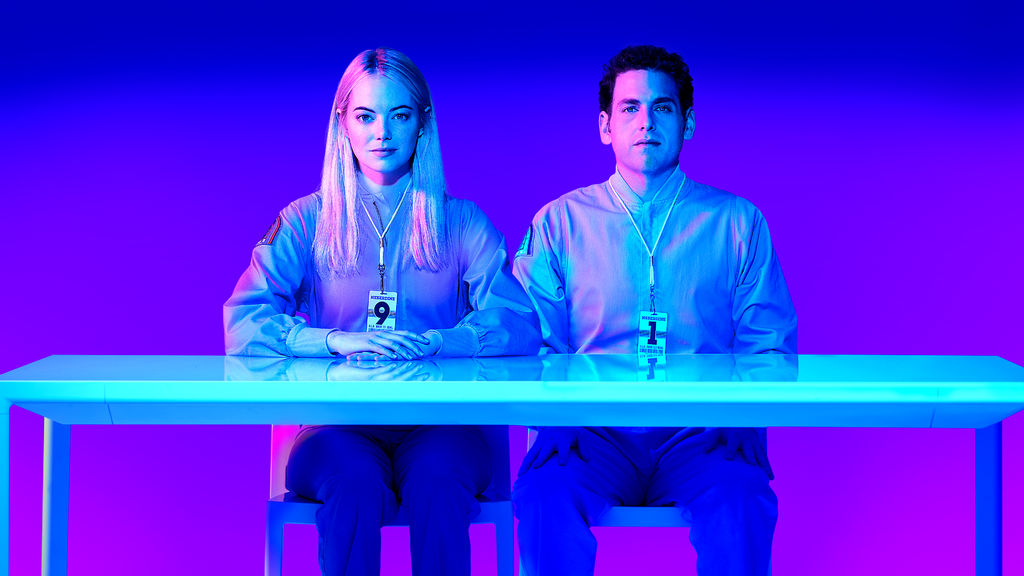
9. Maniac – Netflix: I don’t know if this is fair to say, considering Netflix’s Maniac isn’t exactly your run-of-the-mill drama, but it sort of feels like this show came a year or two too late. On a list full of unique premises and weird shows that bend the limits of the medium, it feels really weird that Maniac doesn’t do enough to set itself apart. It’s auteur driver (created and directed entirely by Cari Fukunaga of True Detective fame), has two huge stars at the apex of their careers (Emma Stone and Jonah Hill, not to mention a great supporting cast including Justin Theroux and Sally Field), it does that thing I love where it’s a drama but isn’t bogged down by a run time, which most episodes hovering between 40 and 50 minutes, and it’s super weird and quirky with a great story that goes some really weird and interesting places. And yet it’s one of those deals where all of that couldn’t get me as excited about the show as I thought I might be. On paper, this should be my #1 new show based on all of the criteria I’ve set forth. So why is it insteat at #9? I can’t quite put my finger on it. It’s good, it’s unique, it’s weird, it stars people I love… and yet it didn’t put all of that together as well as it probably could. But hey, don’t let my negativity stop you, because it is still a great show.
8. Kidding – Showtime: We were so overdue for Jim Carrey’s renaissance that none of us realized that it might happen on a half hour Showtime dramedy, of all places. But the fit is perfect, as shows about flawed people is what Showtime does best, and Carrey is really underrated when leaning dramatic. Throw in the penchant for the weird and absurd that both he and EP/director Michel Gondry have known to wade in and you have a really unique series in Kidding, a show about a Mr. Rogers-esque children’s figure facing the unbearable and cruelty of the real world persistently trying to push him down, testing his resolve., and Carrey is the perfect person to convey that. The show probably isn’t good enough to suggest that Mr. Pickles is anywhere near his best role, but it often comes close.
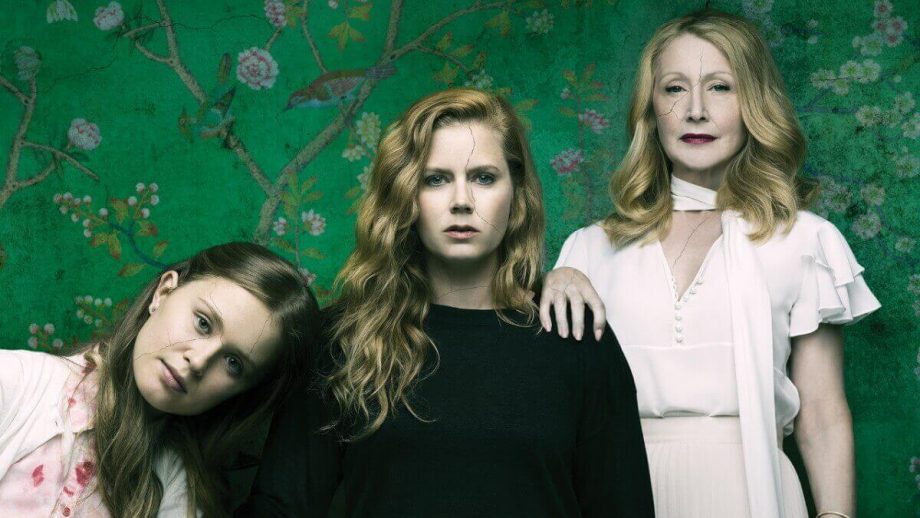
7. Sharp Objects – HBO: This might be a hot take, but I thought Netflix’s 2018 was kind of disappointing for new shows. Despite occupying 5 slots on this list, little on that platform really wowed me. And yet, for the first time in a while, HBO had like three new shows that blew me away, which, per capita, is much more impressive. The first of those shows was Sharp Objects, the latest in the network’s miniseries efforts, and, boy, do they ever knock it out of the park with this one. The idea of a character-driven murder-mystery drama might feel very on brand for HBO, but the writing (led by showrunner Marti Nixon and Gillian Flynn, who wrote the novel), directing (Jean-Marc Vallee) and acting (Amy Adams, Patricia Clarkson, Eliza Scanlen) are so good that it really puts the show over the top. There are things Sharp Objects does with editing, cinematography and sound design that even the most creative and inventive streaming shows can struggle with. The production values are so high that there’s little I look forward to these days on TV over their yearly (or more often) dark, dramatic miniseries.
6. Killing Eve – BBC America: I hope you’re ready for the hottest take in this article, because while I really enjoyed Killing Eve (clearly, as it’s in my top ten), I think it probably can’t live up to its hype, especially as it goes into its second season in 2019. It’s this year’s The Handmaid’s Tale, as a show with a compelling and relevant story with great (notably female) performances at its core, managing to capture the attentions of a lot of people its first season before we all inevitably realize that the premise isn’t sustainable for as long as a show as successful needs it to be. If anything we probably got to that revelation much quicker than with Handmaid’s, as I’ve been struggling to find anything positive to say about how the first season of Killing Eve ends (no spoilers, obviously). Nevertheless, we’re here to celebrate the first season, which was fun, exciting, action-packed and anchored by two fantastic performances from Sandra Oh and Jodie Comer. Forgetting how they might easily flub this going forward, season 1 of Killing Eve easily stacks up as one of the best cat-and-mouse stories in a good long while.
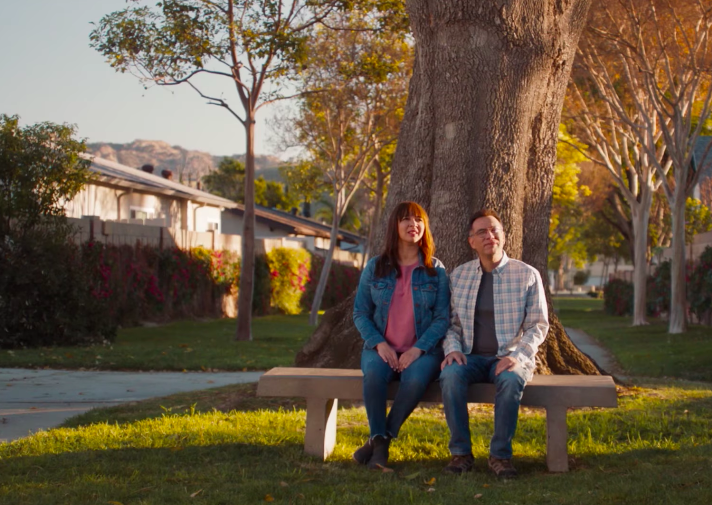
5. Forever – Amazon: Forever is a show you can’t really talk about without spoiling the entire reason it’s so good, and that’s probably why it wound up being somewhat overlooked. So many people I recommended it to brushed me off because I couldn’t adequately explain why it’s so good, and those people will rue the day. But it shouldn’t be that difficult to sell you on this show, because it hails from Alan Yang, the Emmy-winning writer of some of your favourite Master of None episodes (as well as 30 Rock and Parks & Rec scribe Matt Hubbard) and stars two of the most talented comedic actors around in Maya Rudolph and Fred Armisen. And while I get that Armisen might be offputting to some thanks to his unique comedic sensibilities, Rudolph is a delight and performs the entirety of Montell Jordan’s “This Is How We Do It” at one point during the first season. So now you have to watch it.
4. Tom Clancy’s Jack Ryan – Amazon: The reason this post is (embarrassingly) late is because I was (embarrassingly) late in watching Amazon’s big budget Jack Ryan reboot. Even though it came out late in the summer, I kept putting it off, probably because Jack Ryan and Tom Clancy haven’t really been brands that are relevant to me these days, and as I’ve mentioned many times on this list, there are just way too many shows doing crazy, original things for me to get excited about another 24/Homeland clone about terrorist plots and CIA drama. And yet that’s apparently exactly what I needed as a reprieve from a sea of shows trying to reinvent the medium, as I loved Jack Ryan so much that it kept jumping up on this list with every episode I got through, as it’s smart, expertly produced comfort food that you’ll love if you liked those aforementioned shows, featuring a good terrorist plot full of twists, great action and a performance from John Kransinski that transcents those Jim Halpert labels he’s been trying to shake (mainly by showing off all the upper body work he did to prepare for the role, because let me tell you, ladies and gentlemen, there are a lot of gratuitous topless scenes in this). With Homeland coming to an end in 2019 and 24 in the history books, probably for good, Jack Ryan is a very worthy replacement.
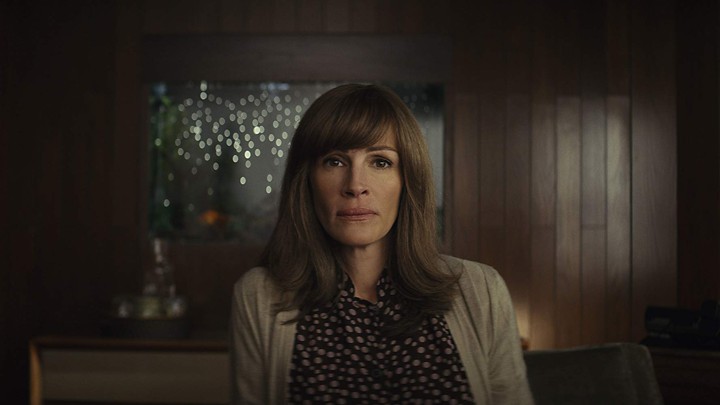
3. Homecoming – Amazon: If Mrs. Maisel, Jim Halpert fighting terrorists and my vague but heavy praise for Forever isn’t enough to sell you an Amazon Prime subscription (where’s my money Jeff Bezos? Or should I say Mackenzie now?), let me tell you about a weird, unique, tension-filled show called Homecoming. Hailing from Sam Esmail (the creator of Mr. Robot) and starring Julia Roberts in her small screen debut, Homecoming is filled to the brim with tension as, over two timelines, it unravels the mystery of what happened to the pharmaceutical program for returning army veterans run by Roberts’ character. This is a show that doesn’t hide its pretense or use for tactics that will probably only appeal to the nerdiest of viewers like me (including Esmail’s affinity for odd cinematography choices, or scene-chewing performances from a supporting cast which includes Bobby Cannavale and Shea Whigham), but unlike in Mr. Robot (no offense to fans of that show), I find it all much better here, and pays off in a fantastic way when the big reveal finally happens. Homecoming is a bizarre show that, much like a lot of what Amazon winds up putting out, is hard to sell, so maybe you should just take my word for it. Or maybe I can sell you on its half-hour episode run times?
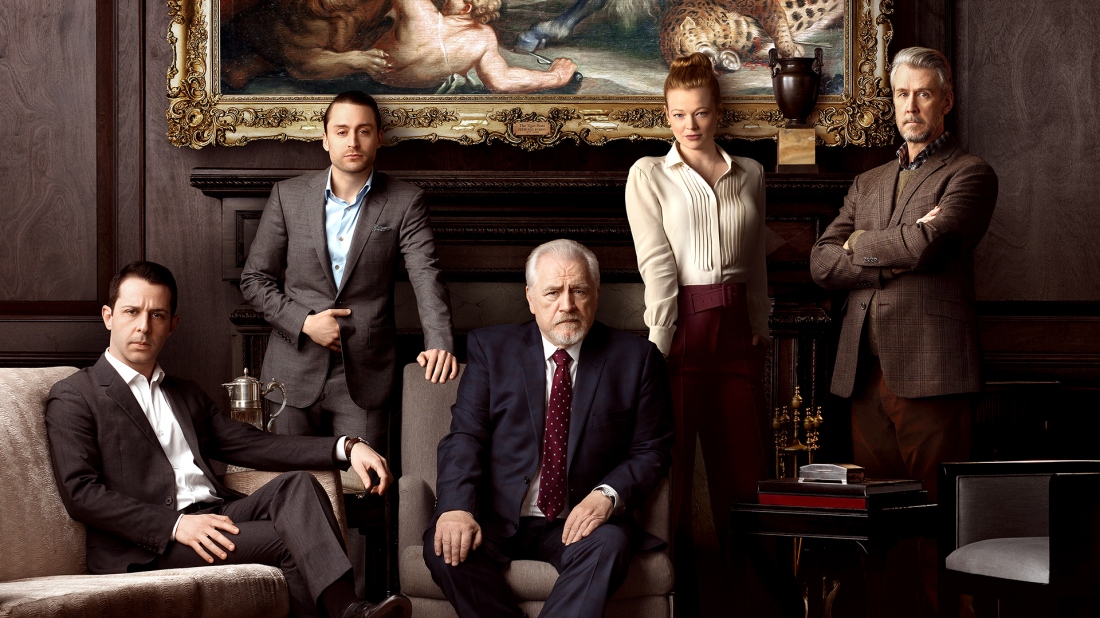
2. Succession – HBO: A lot of what you can probably gather from my TV choices these days (at least what I might put forth in a list like this) is that I’m very much interested in meaningful, auteur-driven shows that have something to say. Especially ones with great performances. Homecoming, for example, has a lot to say about capitalism and the military-industrial complex. Killing Eve, much like some of my favourite new shows from last year (Mrs. Maisel, GLOW, Handmaid’s Tale) do not hide their feminist flags. Succession fits nicely into that mold as a show about a lot of things, but, as concisely and bluntly as I can put it, the destructive nature of the Baby Boomer generation on both younger folks and the system at large (more literally, about a media conglomerate and the family at its head thrust into a power vacuum when its patriarch, played by Brian Cox, has a stroke but eventually refuses to step aside and let his children take over) and yet I was shocked at how much I wound up loving it, as it doesn’t have any flashy names attached, its episodes are all standard hours and HBO aired it in the dead of summer. But seemingly by design, it manages to subvert every single one of your expectations by being unexpectedly poignant and funny and the perfect amount of twisty. On a chart of shows this probably falls perfectly between House of Cards, The Crown, This Is Us, It’s Always Sunny in Philadelphia and Veep. I know that probably doesn’t make any sense, but Succession is a show that’s hard to label and that might be why it was such a hard sell for me. And yet here it is, #2 on the list, with the only reason it’s not in the top spot being a weird ending that I felt missed the mark in order to set up subsequent seasons. But otherwise it’s so unexpectedly good and so entertaining that I can’t praise it enough.
1. Barry – HBO: After droning on about how much I appreciated this year’s bounty of new shows that are topical, it might seem peculiar to put a show like Barry in the top spot. After all, nothing about this show is grounded in reality, nor does it have anything really pertinent to say about current events. Instead, it’s unabashedly a character study, about the ennui of a hitman (Bill Hader) so good at his job that he joins an acting class in an effort to change his life. But his old one just won’t let go, as his handler (Stephen Root) keeps pushing him into new jobs that keep escalating and interfering with his new life This show is am abject fantasy, with a main character who lacks the ability to feel empathy and very clearly a bad guy, akin to a Dexter or Breaking Bad. And yet it somehow manages to make you care about Barry better than Dexter ever did, and more impressively even than in Breaking Bad. Barry is a surprising and impressive show, and there’s no better example of what makes it great than its apotheosis in the penultimate episode of the season, where after a particularly difficult kill, Barry is driven to a very emotional moment in the midst of a scene he puts on with his fellow student and love interest (Sarah Goldberg), perhaps the first time Barry is able to communicate how he truly feels. It’s a moment which perfectly juxtaposes the real shit going on in Barry’s life with the absurdly low stakes of the acting class,and the way it’s capable of balancing those things is what makes Barry such a great show, such a unique show.
